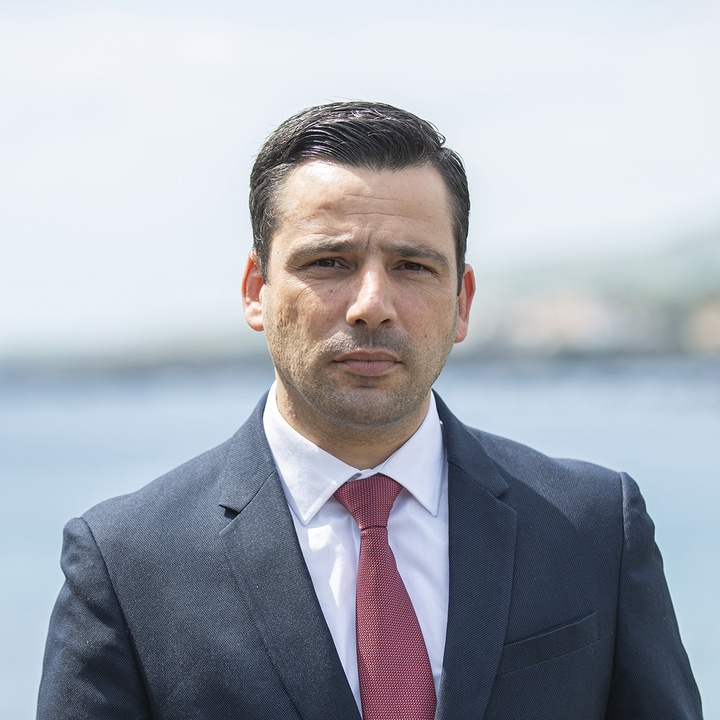Text size:
News

Alonso Miguel announces investment of two million euros in equipment for intervention in the Azorean hydrographic network
Sept. 22, 2023
The Regional Secretary for the Environment and Climate Change, Alonso Miguel, has announced that there will be an investment of two million euros on acquiring new equipment for intervention in the Azorean hydrographic network as early as 2024.
“The effects of climate change have already been felt in the Azores, particularly through extreme weather events, which leave large trails of destruction and socio-economic damage, as was the case with Hurricane Lorenzo, the Efrain and Óscar depressions or the recent storms on all the islands, such as those that hit the island of São Miguel and severely affected parishes such as Mosteiros, Feteiras and Sete Cidades at the end of 2021, or even more recently, last August, several parishes in the municipality of Ponta Delgada, such as Bretanha, Santo António, Ajuda da Bretanha, Capelas, Ginetes and Mosteiros,” he recalled.
“Unfortunately, we already know that the future trend will be for this type of phenomenon to occur more and more frequently and intensely,” he added.
The Regional Secretary responsible for the Environment explained that “it is, therefore, essential to prepare the Region to mitigate climate change, but above all to adapt to this new reality, and in this context, the Regional Government has been working hard on a wide range of initiatives”.
“Through the operational services of the Regional Secretariat for the Environment and Climate Change, or by contracting external services, the 13th Regional Government of the Azores has made a huge effort to meet the needs of cleaning and maintaining water lines, as well as upgrading them by building infrastructures to minimize the risks of flooding, to safeguard people and property,” says Alonso Miguel.
The head of the Environment portfolio revealed that the Regional Annual Plan for 2024 will include a sum of two million euros specifically to provide the Regional Public Administration with adequate equipment for intervention in the Region’s hydrographic network, which covers around 7,200 kilometres of water lines and more than 700 river basins.
Alonso Miguel explained that this is “an unprecedented investment, which will enable the services with competence in this area, namely the operational services of the Regional Directorate for Spatial Planning and Water Resources and the Island Environment and Climate Change Services, to be equipped with machinery and equipment that is essential both for preventive intervention in the cleaning, desilting and maintenance of streams and retention basins, and to increase response capacity in the event of occurrences that cause flooding”.
“This is an essential measure to train the public administration in this area, but it is also fundamental to overcoming the state of absolute degradation and abandonment to which successive socialist executives led the Region's machinery and equipment park during 24 years of governance,” the Regional Secretary stressed.
Also, in terms of the human resources allocated to intervention in water lines, there was “a huge disinvestment on the part of the previous Regional Government, which, for example, between 2017 and 2020, reduced the staff of the water services on the island of São Miguel by 43%”.
“The 138 operatives in 2017 were reduced to just 78 in 2020 when the current government took office. A drastic reduction, which reveals enormous sloppiness and carelessness,” he laments.
Alonso Miguel also noted that “procedures are currently being finalized to hire 18 more operatives to work on water lines, under the LIFE IP CLIMAZ project, as well as to reinforce the region's Park Rangers corps with 12 more personnel, thus substantially increasing the capacity to monitor and supervise the Azorean hydrographic network.
Alonso Miguel concluded by recalling that this demanding matter requires a joint effort by all the entities with direct or delegated powers to clean, maintain and upgrade water lines, namely, in accordance with the Water Law, municipal councils and parish councils, the Regional Government and the owners of private land on the banks and beds of streams.

